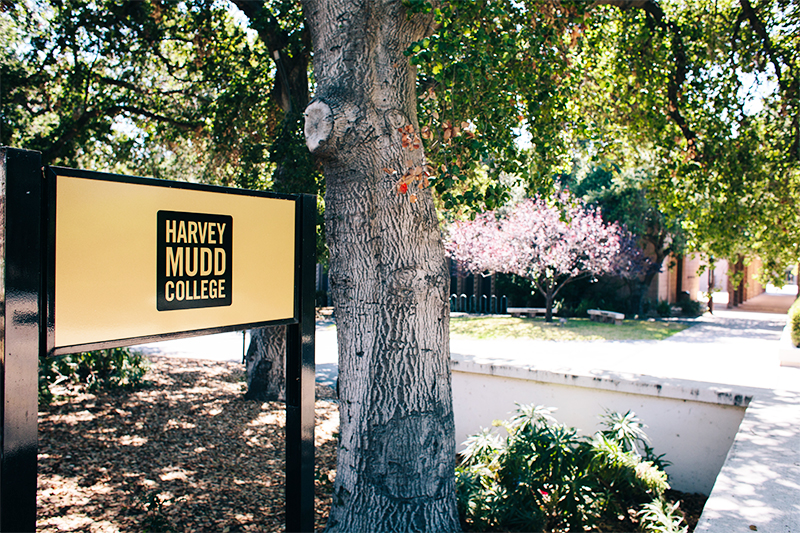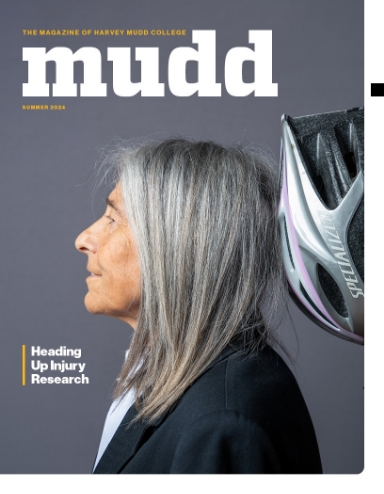Engineering Course Offered to Worldwide Audience
September 23, 2020
The Harvey Mudd College Department of Engineering will offer Digital Design and Computer Architecture, ENGR85, as a massive open online course (MOOC) through EdX this spring. The course complements a new edition of the textbook by the same name, coauthored by engineering professors David Harris and University of Nevada, Las Vegas, professor Sarah Harris (no relation).
Developed by David Harris, Sarah Harris and HMC engineering professor Josh Brake, the course is being offered during fall 2020 as a beta test with approximately 50 HMC students and three high school students participating and providing feedback. In spring, the course will be open to anyone, and it is the professors’ intention that it will be accessible to high school students interested in engineering and to students in the developing world with less access to experiential learning. Registration opens later this fall (To sign up, create a free EdX account and search for ENGR85A.).
Harvey Mudd’s E85 course provides an introduction to elements of digital design, followed by an introduction to computer architecture. Topics in digital design include: Boolean algebra; combinational logic; sequential logic; finite state machines; SystemVerilog; computer arithmetic; and building blocks. Topics in computer architecture include C and assembly-language programming, embedded system design with a RISC-V microcontroller, and microarchitecture, in which students design their own microprocessor. In the MOOC format, each course lecture is broken into five- to 10-minute videos interspersed with simple practice problems to immediately reinforce the concepts taught. The class has a weekly lab and a weekly problem set. Students view the videos and complete the practice problems in advance of the scheduled class session, then they attend synchronous sessions in the class time slot, in which they work on problems related to the lab and problem sets. Students have a take-home lab kit with a breadboard, a RED-V Thing Plus RISC-V single board computer, LEDs, switches and an accelerometer. They also do labs involving design and simulation of digital logic using a commercial simulator called ModelSim.
“Some of the nifty features of the MOOC include auto-graded practice problems, problem sets and labs that provide instant feedback and multiple chances to succeed,” says David Harris, who is teaching the fall semester beta test version of the class. “The design labs include a test bench that computes a hash from the outputs to let the MOOC automatically confirm that the design is correct.”
The class also includes a set of reflective statements related to the impact on society, like this one: “Research and write a paragraph about how digital systems have transformed another discipline of engineering within your lifetime. Provide quantitative data about at least one specific impact, such as cost, reliability, etc.”
“Students submit their responses, calibrate their assessment against reference answers and then read, respond to and assess several of their classmates’ responses,” Harris says.
So far, the results of the beta version are encouraging. “Students are doing substantially better on problem sets and labs than in previous semesters,” David Harris says, “while reporting spending substantially less time on the assignments, although they do spend extra time on the practice problems and synchronous sessions.”
During spring, Brake will teach the course to HMC students, and the corresponding MOOC will be open to the world. “It is free for those who do not do the graded assignments, and we expect there will be a small fee for those who wish to do the assignments and receive feedback,” David Harris says. We expect it will be available online for the foreseeable future, and plan to have a way that non-HMC audiences can learn the content at a more relaxed, self-paced schedule. We hope that the MOOC will be able to make the beauty and joy of digital systems accessible to unconventional audiences.”
